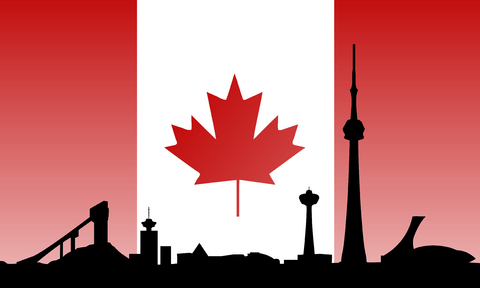
There is no doubt that foreign investment in Canadian property has pushed some house prices to levels which are out of reach for many domestic investors. It is fair to say that Canada is not the only country experiencing such problems but it is fair to say the impact is greater than many other markets around the world. For example, the West Vancouver property market has a ratio of median household income to median house price which is 25 times annual household income!
Markets within markets
In tandem with the London property market, where house prices and income/value ratios are out of sync with the rest of the UK, there are certainly similar markets emerging in Canada. In many ways this makes a mockery of the national house price index and comparisons between different areas of the country are in many cases similar to comparing apples and pears. When you are talking about median house prices equivalent to 25 times annual household income you are not talking about individuals buying property using their working incomes. We are looking at seriously wealthy individuals, with much of the wealth coming from overseas, who are pushing prices to unattainable levels for many Canadians.
The problem is that as the more affluent areas of the Canadian real estate market become more popular, this creates a mushroom affect whereby property prices on the outskirts rise as investors look for cheaper alternatives. This can see many less wealthy individuals pushed into selling their properties and banking a profit leaving the area to those at the higher echelons of the investment market.
Foreign investment
If we take West Vancouver as an example, official government statistics suggest that only 6.5% of property is owned by non-residents. Experts in the field of real estate are not totally trusting of these figures which can be manipulated in various ways by overseas investors. The widespread use of companies, trusts and proxies to acquire property will muddy the water and can potentially give the wrong impression. The fact that, prior to the 15% foreign buyers tax introduced back in August 2016, we know that 24% of recent real estate purchases were made by foreign buyers.
While obviously the 24% figure is a percentage of real estate transactions in the region, this does not necessarily tally with the 6.5% ownership figure issued by the authorities. There is also a long-term quandary when it comes to foreign investment because in the tough times, post the US mortgage crisis back in 2008, many countries around the world were actively looking to attract overseas investors. If they were good enough to buy property at that moment, offering much-needed support to local markets, why are they being discriminated against today?
Conclusion
Whichever way you look at it, any country around the world has an array of property markets within property markets, which often bear little or no resemblance to the national picture. We have the London market in the UK, the West Vancouver market in Canada (one of many) and we have other high-value property markets around the world. To compare and contrast these markets against traditional markets on income against property prices is irrelevant. We need to strip out markets which are purely and simply seen as a “home for the rich” and focus more on domestic markets to highlight underlying trends.
Comparing the likes of the London property market to the rest of the UK is, as we suggested above, like comparing apples and pears. What would it take to reduce the West Vancouver ratio from 25 times average annual income down to 10 times or even five times? The current ratio is not based on the Canadian economy, it is not based on cheap finance so what will move it? Certainly not traditional investment instruments at the beck and call of governments around the world.

